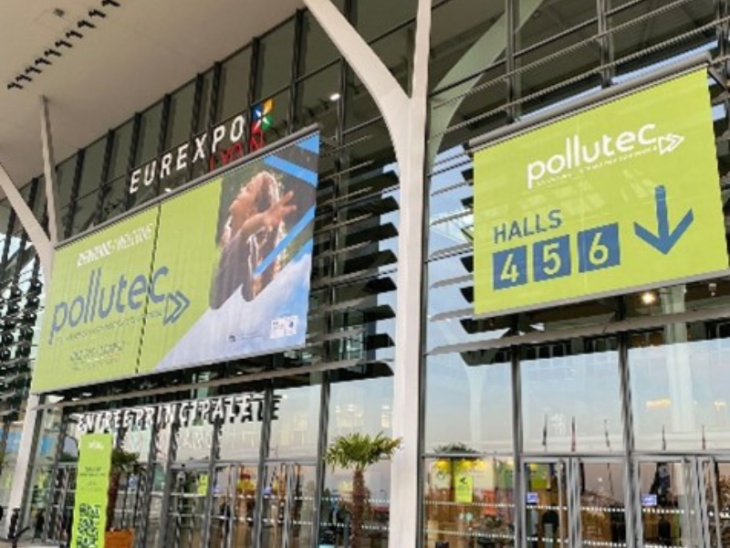Industry of the Future: Clusters meet Regions event in Lyon
On 12 – 13 October 2023, the European Cluster Collaboration Platform (ECCP), in partnership with the competitiveness cluster CIMES Auvergne-Rhône-Alpes, the Auvergne-Rhône-Alpes region, the regional development agency Auvergne-Rhône-Alpes Entreprises and both competitiveness clusters Polyméris & Techtera, jointly organised the “Clusters meet Regions” workshop in Lyon, France. Over 60 participants representing clusters, SMEs and public/regional governments joined.
The workshop took place in the framework of the industrial exhibition Pollutec, the international reference meeting for environmental solutions. The main focus of the workshop was on the industry of the future, the French model of competitiveness, and the role of clusters as intermediaries.
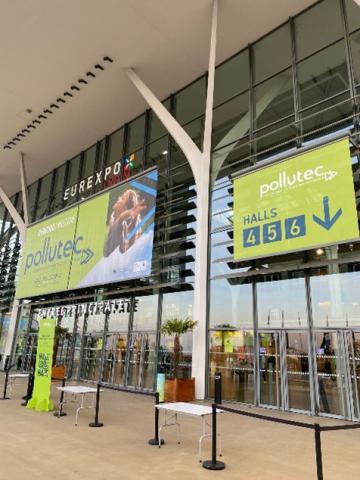 |
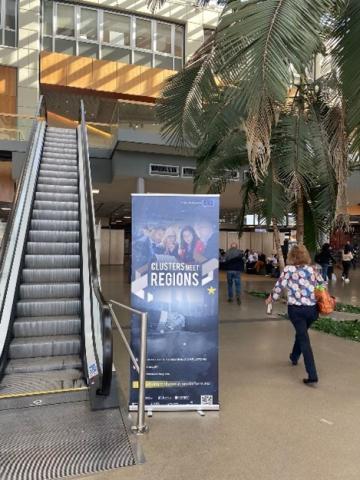 |
DAY 1
To set the tone of the event, welcoming addresses were given by Stéphanie Pernod, 1st Vice-President of Region Auvergne-Rhône-Alpes, and Mariella Masselink, Head of Unit "Industrial Forum, Alliances and Clusters" at DG GROW, European Commission. They highlighted the importance of the workshop for fostering collaboration among clusters and policymakers at various levels. This synergy has also been an important focus of the past 10 "Clusters meet Regions" events held across the EU between 2022 and 2023.
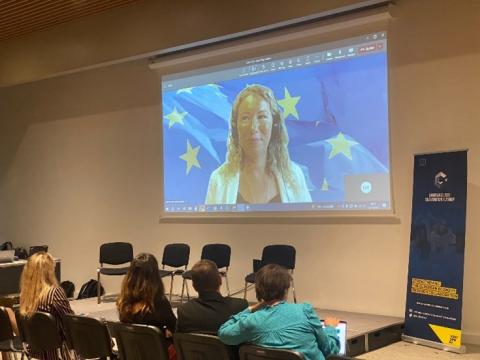
Dr. Jan-Philip Kramer, from Prognos and an ECCP Team member, introduced the latest Input Paper on the Auvergne-Rhône-Alpes region. This paper shed light on the region's distinct strengths and challenges. According to this recent research, the region’s key strengths are:
- Being a strong innovator known for top-notch research & sharing knowledge,
- Begin home to France's most active cluster groups, with strong policy support,
- Hosting big players in key S3 areas, especially the twin transition.
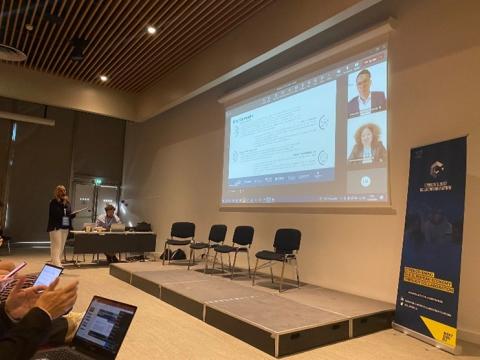
Lisa Besnard, European & International project manager at France Clusters, emphasised the crucial role of public support and collaboration for nurturing clusters in France over the last two decades. The current figures are impressive: France is home to 300 clusters, of which 55 competitiveness clusters (selected in the framework of national policy), representing 80,000 companies.
As Lisa Besnard said: "What makes clusters so effective and valuable as intermediaries is the closeness of highly skilled cluster managers to their ecosystems. They understand their needs and can address them effectively, sharing knowledge and facilitating their entry into new and diversified markets."
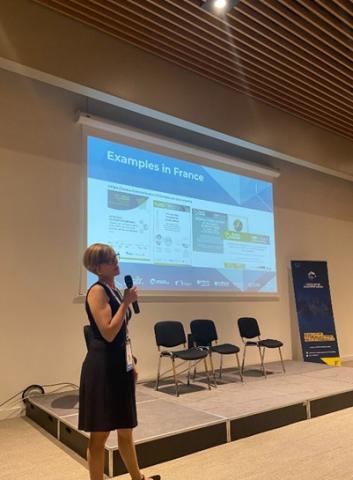
Next on the agenda, the first panel explored the relevance of the French model of competitiveness in addressing global crises. Significant points included the history of AFPC (Association of the French Competitiveness Clusters), the role of clusters during the COVID-19 pandemic, the significance of pôles de compétitivité, and their alignment with the France 2030 national plan.
Pauline Capus, the Director of AFPC, highlighted the organisation’s strategy, which is based on a multistage approach, and emphasized the importance of enhancing visibility and connectivity within regional, national and European innovation ecosystems.
Antonio Novo Guerrero, President of the European Cluster Alliance, outlined how during the COVID-19 pandemic, French clusters played a pivotal role in sustaining the economy, thus enablingclusters across Europe gain many insights from their actions. “New challenges lie ahead with new priorities set at the EU level, particularly concerning the European economic security strategy. Clusters have a significant role in aligning with these new priorities to strengthen their position in the global economy.”
Vincent Deschamps, General Directorate of Enterprises (French Ministry of Economy, Finance and Industrial Sovereignty), explained that the criteria to become a pôle de compétitivité are reviewed every 4 to 6 years and the selection process and cluster tracking involve 11 ministries & 15 regions. Pôles de compétitivité play an active role in the France 2030 national investment Plan as they are considered essential to tackle new challenges, including nuclear energy, low-carbon planes, raw materials, robotics and much more.
Hervé Floch concluded the session by detailing the European Committee – AFPC's activities since 2019. These included over 1500 European project submissions and 60% of cluster managers with future plans to recruit in European teams.
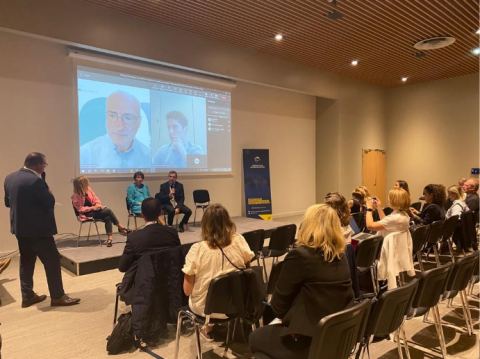 |
A networking lunch followed, where participants had the chance to exchange contacts, ideas and best practices.
In the afternoon, a dedicated session took place focusing on interregional collaboration and the key priorities of Auvergne-Rhône-Alpes, including the Green and Digital Transition. Sonia Martin, the region's Economic Director, presented the SRDEII development plan 2022-2028. This plan aims to strengthen industry, enhance regional innovation, and optimize business support.
Alain Van Raek, the Program Manager for Auvergne-Rhône-Alpes at DG REGIO within the European Commission, provided an overview of the region's cohesion policy program. He highlighted the EU's approach to fund allocation, which categorizes regions into three distinct groups: more developed, less developed, and transition regions. Uniquely, Auvergne-Rhône-Alpes encompasses two of these categories: Auvergne is designated as a transition region, whereas Rhône-Alpes is considered more developed. The entire budget allocated for this purpose is distributed over a span of seven years.
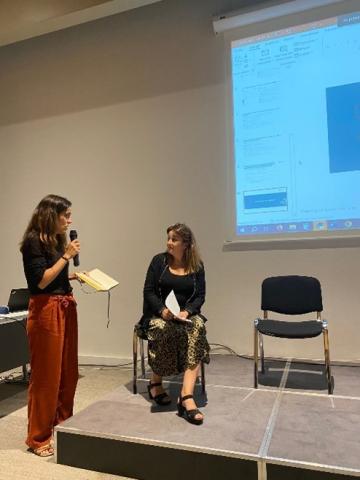
Loïc Marin, European project manager at CIMES, highlighted how the cluster has established a new dynamic and fruitful relationship with Japanese counterparts, especially with those located in Aichi Prefectural Government (Japan). This was thanks to a successful collaboration with the region and availability of funds. Next year, CIMES will join the Smart Manufacturing Summit in Aichi, as part of the cluster’s international development plan.
Catríona Mordan, from ATIM cluster 5Ireland), then discussed the Irish cluster's focus on sustainable manufacturing and their ongoing and fruitful collaboration with Auvergne-Rhône-Alpes. This alliance was solidified with MOUs signed with French clusters, CIMES & Polymeris, on the occasion of the Pollutec Fair and the Clusters meet Regions workshop.
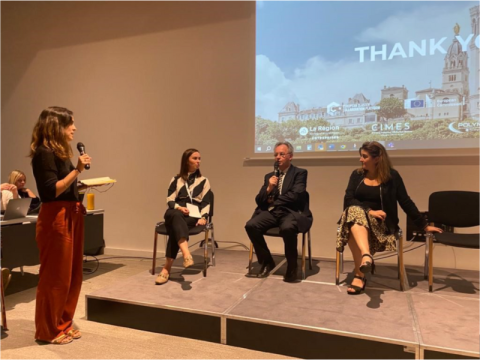 |
The following panel discussed reshoring of industry and how regional authorities/agencies and clusters can accelerate the process at EU level. It involves bringing back businesses and industries to their original region after they had previously been offshored or moved to other countries where production costs were cheaper.
Sonia Martin, speaking in this context, remarked, "Reshoring is vital for our economies and is a political pledge." The region ratified a strategic relocation plan in December 2021, aiming to create 30,000 industrial jobs in the region over six years.
Clara Potton, Innovative Manager at Synergies TLC, then presented the FIREX project as an exemplar of clusters expediting processes. FIREX aims to establish a recycling industrial value chain for textile waste in France, underscoring the importance of reshoring.
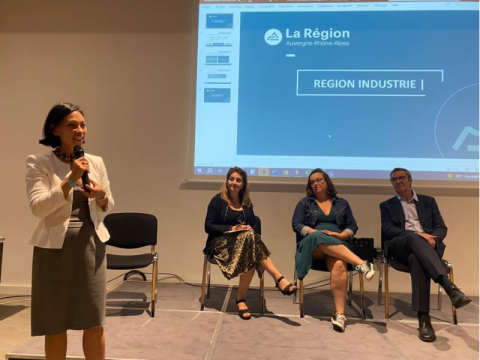 |
|
To conclude the conference, representatives from Alpine Regions and Lombardia (Italy) presented projects aiming to bolster influence within European industrial networks and platforms. One example is the recently initiated "business passport", operational across four regions: Baden-Wurttemberg (Germany), Auvergne-Rhône-Alpes (France), Catalonia (Spain), and Lombardia (Italy). This passport seeks to streamline collaborations, facilitating businesses in their endeavours with foreign partners.
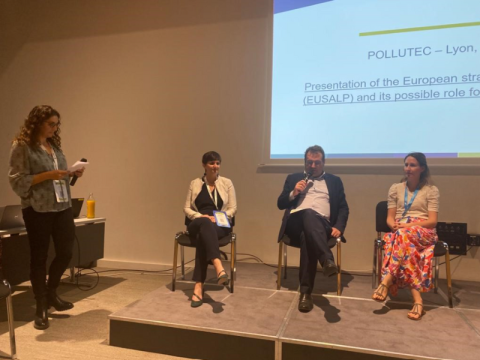 |
|
DAY 2
On the second day, participants had the opportunity to attend pitching sessions at POLLUTEC, forming part of the interclustering event in collaboration with Green Days of the EEN.
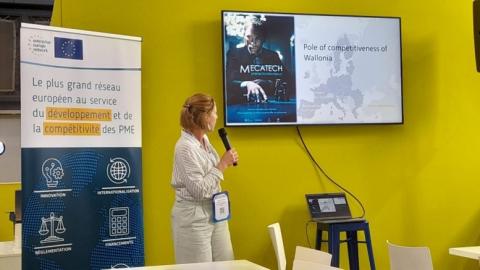 |
|
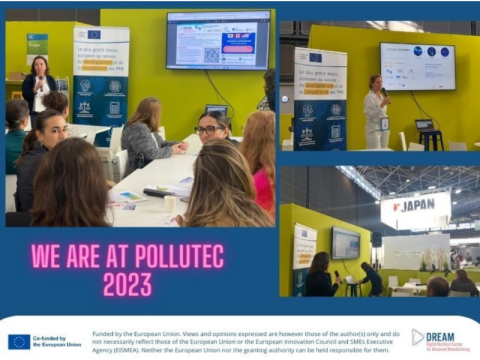 |
The official agenda of the event can be found here.
More details on the previous and future Clusters Meet Regions events can be found here.
